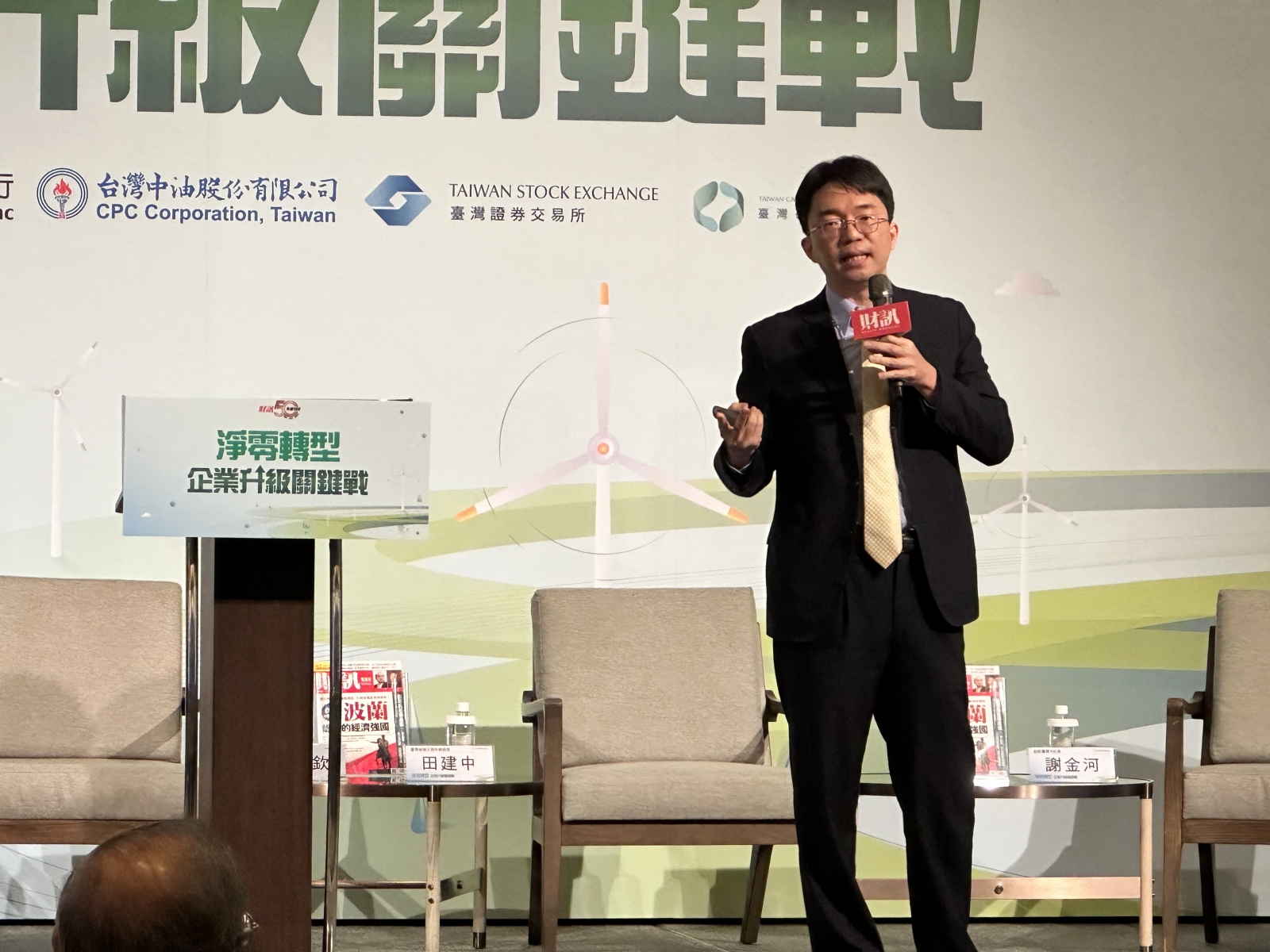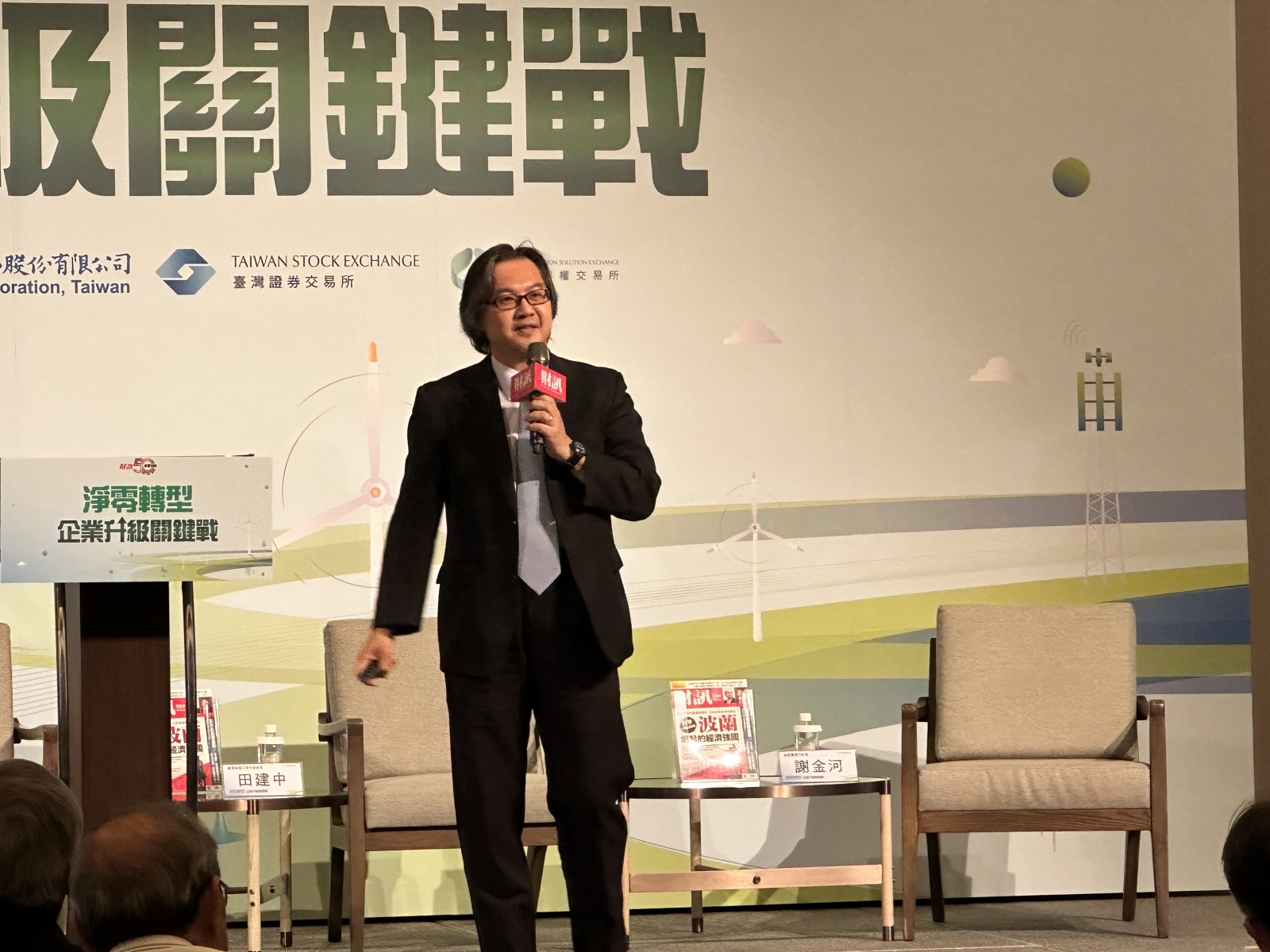The new statement from the Science Based Targets initiative (SBTi) indicates that carbon credits have now reached a turning point, with demand expected to significantly increase, according to Tian Jian-zhong (田建中), general manager of Taiwan Carbon Solution Exchange (TCX).
SBTi has recently decided to allow the use of carbon credits to offset Scope 3 emissions, marking a change from its previous strict requirements for companies to reduce emissions.

TCX’s general manager Tian Jian-zhong (Photo: Lin Bo-yu)
SBTi announced on April 9 that it would allow companies to offset Scope 3 carbon emissions using voluntary carbon credits, which include indirect emissions such as those from the supply chain and waste treatment. This expansion of carbon offset usage is seen as contributing to growth in carbon credit demand.
However, opposition has arisen within SBTi, with experts arguing that the risk of greenwashing could be significantly increased, potentially reducing actual carbon reduction efforts.
Purchasing carbon credits is not the same as greenwashing, Tian said. He cited a Time magazine report indicating that companies that purchase carbon credits place a greater emphasis on carbon reduction and invest three times the size of those that do not.
Driven by global net-zero trend, Taiwanese companies' anxiety about carbon reduction comes mainly from their customers, he said.
For example, the major source of emissions for Microsoft and HP come from Scope 3, and Taiwan's manufacturing industry, as part of the supply chain of these international corporations, must implement carbon reduction measures and inevitably needs to purchase carbon credits.
As the carbon credit market is likely to undergo significant changes, Tian urged companies to prepare in advance.
If companies achieve significant carbon reduction results, they can even become sellers and turn carbon credits into a source of revenue, he said.
Tian made the remarks at the "Key Battle for Enterprises' Transition to Net Zero" forum organized by the Wealth Magazine on April 18, together with Chao Gong-yue (趙恭岳), CEO of the International Climate Development Institute (ICDI), Liu Ching-ching (劉靜靜), chief sustainability officer of Acer, and Li Shun-chin (李順欽), chairman of CPC Corporation.
To address the anxiety of carbon reduction, companies first need to answer four questions: whether they have listed or OTC clients, whether they have completed a carbon inventory, whether they have a net-zero roadmap, and whether they have produced a sustainability report, according to Chao, suggesting companies review and formulate countermeasures.
He added that carbon reduction would be the key to supply chain competition over the next five to seven years, and that enterprises, especially small and medium-sized enterprises (SMEs), would not be able to recover from the impact if they were not adequately prepared. Therefore, they should identify and improve weaknesses in their operations and supply chains.

Chao Gong-yue, CEO of the International Climate Development Institute (ICDI) (Photo: Lin Bo-yu)
He compared corporate sustainability to the issue of food safety, emphasizing that achieving net-zero is the process of pursuing health, and using green energy is like eating whole food.
Taiwan's carbon intensity, or carbon emissions per unit of GDP, has been decreasing, standing at 0.01191 kg CO2 /TWD in 2022, down over 40% from 0.02058 kg CO2 /TWD in 2005.
The decline not only demonstrates Taiwan's success in promoting a low-carbon transition but also illustrates the decoupling of carbon reduction from economic growth.
The era where higher carbon emissions meant a stronger economy is over, Chao said, calling on companies to follow the carbon reduction trend based on the above figures.
After completing carbon inventories, companies should establish goals and strategies based on regulations, supply chain requirements, and trade, as well as assessing the impacts of the transition, while continue to monitor, communicate, and disclose information to move towards the net-zero goal, he said.




